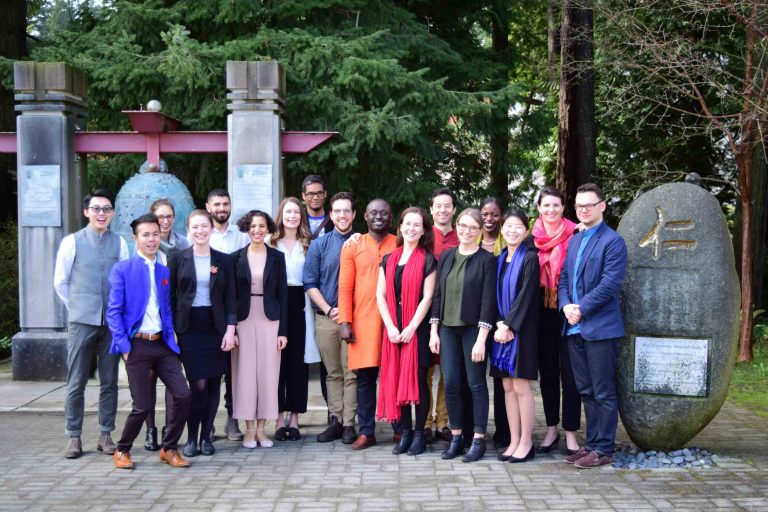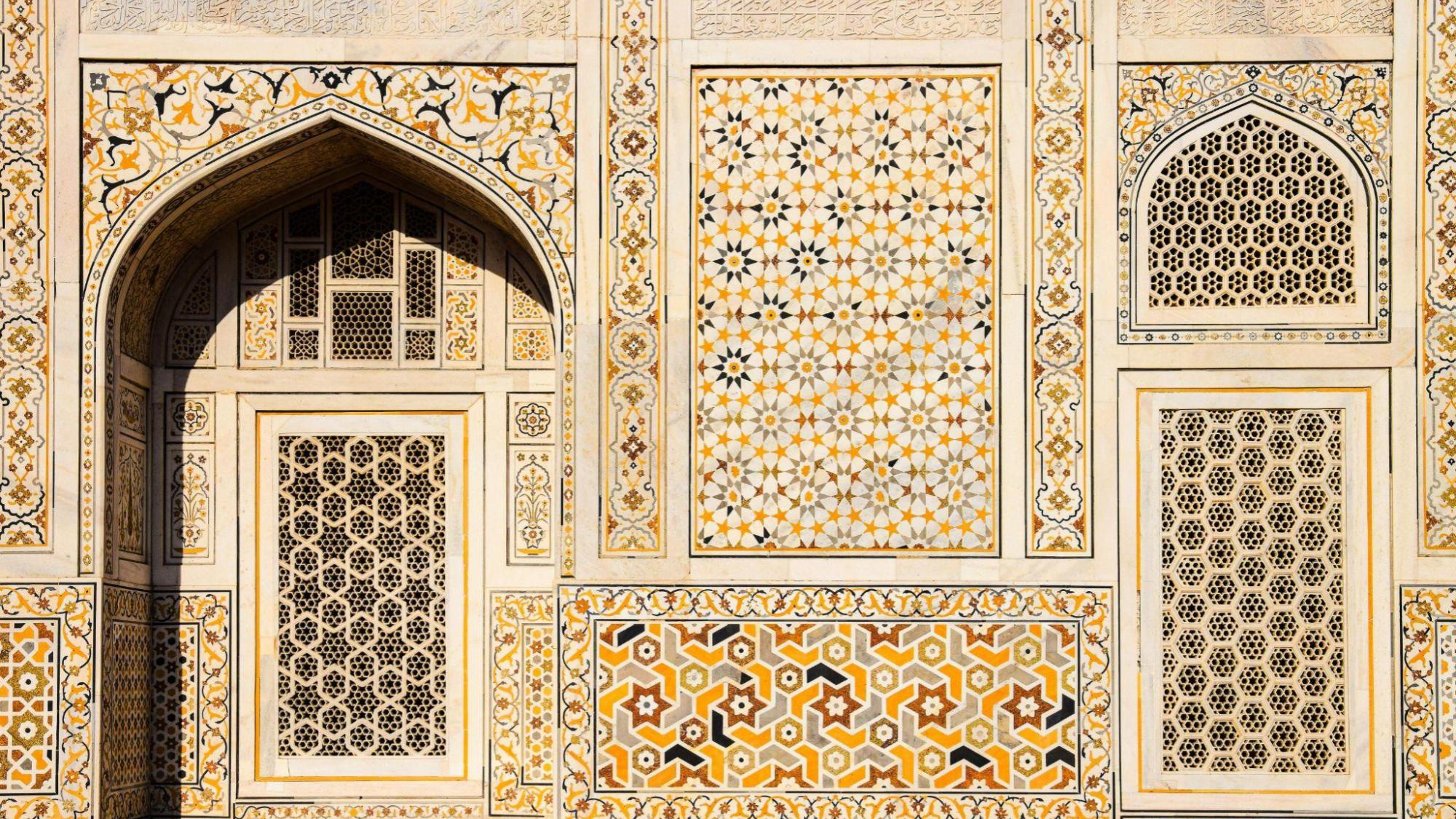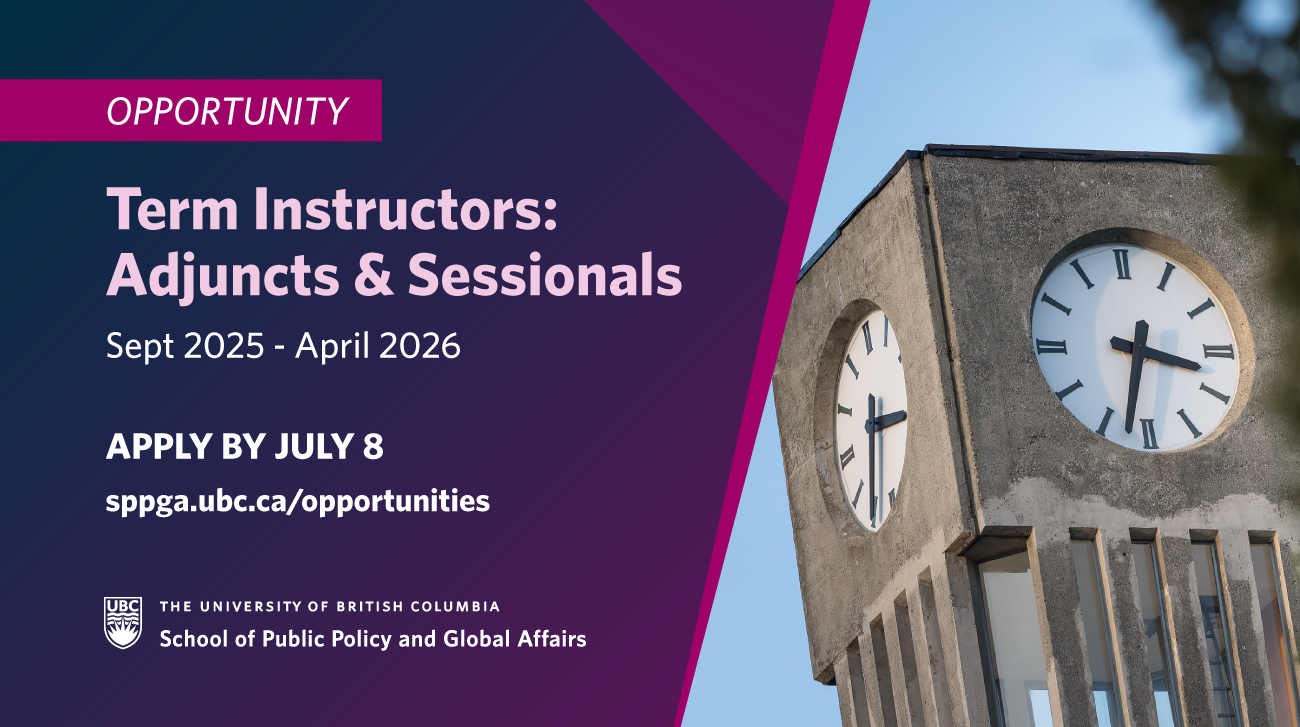As a defining element of UBC’s Master of Public Policy and Global Affairs (MPPGA) curriculum, the intensive Global Policy Project (GP2) (GPP 590) provides the opportunity for teams of MPPGA students to engage with policy makers and civil society organizations on a real-world policy challenge. GP2 is completed over the course of Year Two through a combination of Design Studio sessions and intensive stakeholder engagements. The project offers an opportunity to apply methods and skills learned during the core courses taught during Year One. Learn more about it here.
On March 27, 2018, MPPGA students from the 2016 cohort presented their policy report findings at the Global Policy Project Symposium held at UBC. Several projects were locally based while others involved international travel to India and Timor-Leste. The teams applied policy research methods and strategic design skills to address various policy issues identified by their clients, from financial inclusion in Timor-Leste to water policy in Indigenous communities in Canada.
To better understand what types of policy challenges the students addressed, take a look at the seven Global Policy Project descriptions and symposium presentations below:
Project Title: Rural Support Policies: Sustainable Livelihood Development and Capacity Building in Gujarat, India
Project Client: Aga Khan Rural Support Programme (India), A programme of the Aga Khan Development Network
MPPGA students Sarah Froese, Keskine Owusu Poku, and Luis Pablo Acosta Zamora presented a report that examines the efficacy of three major activities of the Aga Khan Rural Support Program for sustainable livelihood development against the backdrop of rural development policies of the state. The team made recommendations around decentralization and rural governance, national rural livelihood mission, and a Solar Irrigation Pump Scheme (SIPs).
Project Title: Examining the Co-operative Movement in India
Project Client: International Cooperative Alliance of Asia, New Delhi, India
MPPGA students Lauren Hamman, Reagan Rockzsfforde, and Bo Wang provided policy recommendations to the International Cooperative Alliance of Asia with the aim of helping India’s co-operative enterprises grow sustainably. Large number of co-operatives in India fail to function in a sustainable and equitable manner while they strive to deliver on their development goals. The team’s recommendations included a revised performance assessment criteria and a re-prioritization of capacity building inputs to strengthen their ability to develop leadership capacity; to adopt a flexible, strategic, and forward-looking mindset; and to actively engage in the market so that the co-operative is financially viable and maintain the attributes of a democratic institution.
Project Title: Inclusive Financial Services in Timor-Leste
Project Client: Kaebauk Investimentu no Finansas (KIF), Timor-Leste
MPPGA students Claire Allen, Joanna Fensome, and Nathan Seef tackled development changes in Timor-Leste, a young country that faces high levels of poverty. The students provided policy recommendations for long-term sustainability and financial inclusion to their project client, Kaebauk Investimentu no Finansas. The research identified barriers to financial services and explored the feasibility of transitioning from a brick-and-mortar branches to mobile technology based services.
Project Title: Financial Inclusion in India
Project Client: SubK iTransactions Ltd., India
MPPGA students Elisha Connell, Mitch Hulse, Hyun Ju Lee, and Tinashe Mutsonziwa pprovided policy recommendations to suggest how Sub-K iTransactions can evolve its operations to effectively meet the changing landscape of economic development and its goals of providing financial inclusion solutions to its low-income customers across India. The study also examined Sub-K’s internal mechanisms to improve resilience against adverse policy changes and reconciling the twin objectives of achieving poverty alleviation and staying commercially viable.
Project Title: Resilient Neighbourhoods Project: Fostering Social Connectedness and Engagement
Project Client: The City of Vancouver
As part of their GP2, MPPGA students Oluwatoyin Christiana Onabola and Candy Tladi focused on developing city policies around neighbourhood social resilience to be applied in the City of Vancouver. The project concentrated on how to harness the city’s current social assets in order to foster a stronger sense of community and strengthen the connecting and engaging capacities of neighbourhoods. The longer-term aim of the citywide Resilience Strategy is to help residents, communities, institutions, and systems survive, adapt, and expand no matter what types of stresses and shocks Vancouver may experience.
Project Title: Between Two Rivers: Access to Safe Drinking Water in Canada & the Case of Lytton First Nation
Project Client: Global Reporting Centre, UBC
MPPGA students Marc Attallah, Amelia Duggan, Yannick Gayama, and Farah Kashaf Tadli presented on water policy in Canada and the case of Lytton First Nation in B.C. Their project, working with UBC’s Global Reporting Centre, addressed the lack of safe drinking water in communities in the Lytton First Nation. Lytton is an example of the water crisis currently happening in many Indigenous communities across Canada. The team looked at overall water governance structures, standards and regulations which are held by provincial and municipal governments, and the interplay with the Indian Act. Despite its century-old fiduciary duty towards Indigenous peoples, the federal government has not been proactive in installing water treatment systems in Indigenous communities. This project showcases the current fragmentation in Canada’s water governance system and a local example that demonstrates innovative and trust based solutions to systemic water problems.
Project Title: After the Nuclear Ban Treaty: Canada and Nuclear Disarmament
Project Client: Reaching Critical Will
As part of their GP2, MPPGA students Laurélène Faye, Adilkhan Shashdavletov, Henry Shum, and Salman Ghumman worked with their client, Reaching Critical Will, to better understand Canada’s refusal to sign or participate in the negotiations that led to the Treaty to Prohibit Nuclear Weapons that was adopted at the United Nations in 2017. Their project analyzed expert opinion on nuclear weapons and nuclear disarmament, Canadian history, activism, public perception, international diplomacy, alliances and constraints. The team made two key recommendations to Reaching Critical Will: Continue to build alliances with similar minded organizations in key countries and continue a lobbying campaign to increase public awareness by building a narrative based on humanitarian consequences of the use of nuclear weapons and explaining how nuclear weapons pose a collective danger to the planet and our people.
At the School of Public Policy and Global Affairs, we are always looking for new partners in industry, government, and the non-profit sector who have a policy challenge for our MPPGA candidates. If you wish to partner on the Global Policy Project or have a career opportunity for one of our graduates, please contact the MPPGA Partnership Team at mppga.partnerships (at) ubc.ca



